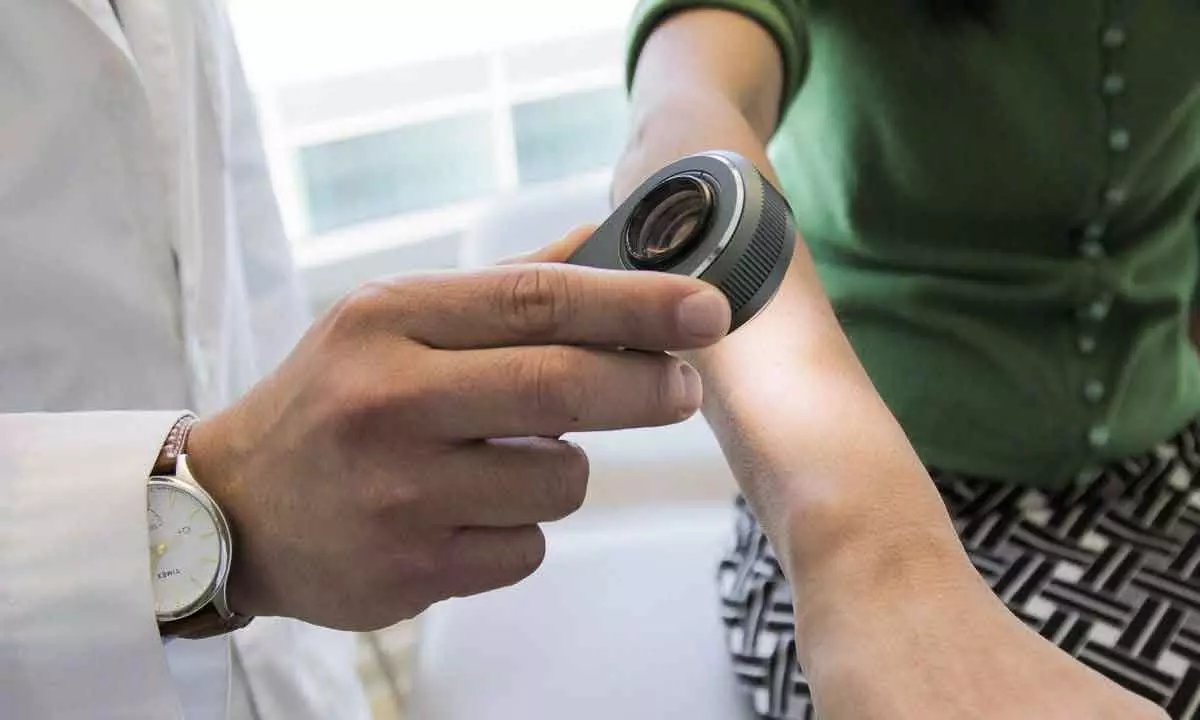Skin cancer detection improves quickly with AI software
Latest software reaching a 100% detection rate for melanoma: Study
image for illustrative purpose

The third version of the AI software marks a significant improvement from the first model, tested in 2021, which detected 85.9 per cent (195/227) cases of melanoma, 83.8 per cent (903/1078) of all skin cancers and 54.1 per cent (496/917) precancerous lesions
London: Skin cancer detection using Artificial Intelligence has rapidly improved, with the latest software reaching a 100 per cent detection rate for melanoma.
A new research presented at the ongoing European Academy of Dermatology and Venereology Congress 2023 in Berlin, Germany, assessed 22,356 patients with suspected skin cancers over a 2.5-year period.
The new software showed a 100 per cent (59/59 cases identified) sensitivity for detecting melanoma, the most serious form of skin cancer.
It also correctly detected 99.5 per cent (189/190) of all skin cancers and 92.5 per cent (541/585) of precancerous lesions.
The third version of the AI software marks a significant improvement from the first model, tested in 2021, which detected 85.9 per cent (195/227) cases of melanoma, 83.8 per cent (903/1078) of all skin cancers and 54.1 per cent (496/917) precancerous lesions.
"This study has demonstrated how AI is rapidly improving and learning, with the high accuracy directly attributable to improvements in AI training techniques and the quality of data used to train,” said lead author Dr. Kashini Andrew, Specialist Registrar at University Hospitals Birmingham NHS Foundation Trust in the UK.
“The latest version of the software has saved over 1,000 face-to-face consultations in the secondary care setting between April 2022 and January 2023, freeing up more time for patients that need urgent attention," Andrew added.

